#younger memnon
Text
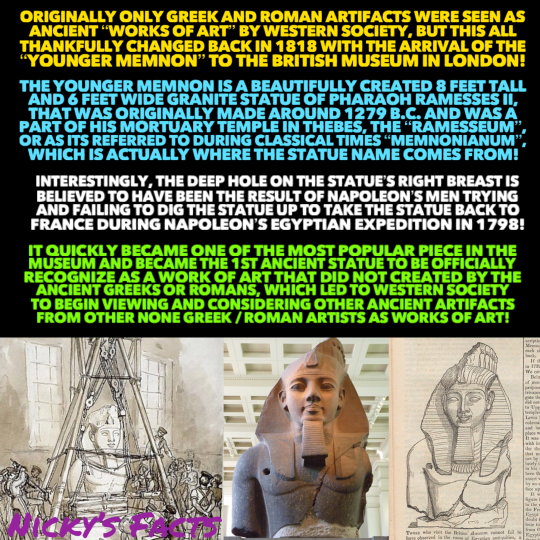
The Younger Memnon is probably one of the most impactful sculptures in world history, yet very few know about it today𓀲
#history#younger memnon#memnonianum#ancient egypt#ramesseum#art history#british museum#ancient#sculpture#ramesses ii#egyptian history#thebes#historical art#napoleon bonaparte#egyptology#victorian age#racism#western world#ancient history#artifacts#ancient greece#ancient rome#work of art#1800s#ancient art#nickys facts
3 notes
·
View notes
Text
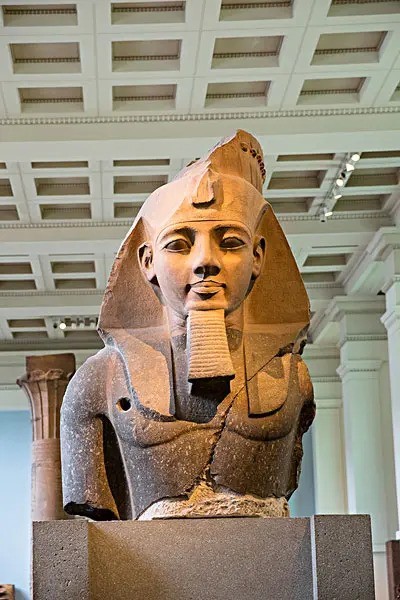
The Younger Memnon (colossal granite head of Ramesses II). Now in the British Museum, London. EA19
223 notes
·
View notes
Note
Shows or movies based on historic figures and events are hard to pull off if the goals are to be both entertaining and somewhat true to history. If we accept that some inaccuracies can't be avoided in order to appeal to audiences what would you consider cornerstones and pillars about Alexander and his history that can't/shouldn't be touched in order to paint a somewhat realistic picture in media based on him and his life?
I saved this to answer around the time of the Netflix release. For me, there are four crucial areas, so I’ll break it down that way. Also. I recognize that the LENGTH of a production has somewhat to do with what can be covered.
But, first of all…what story is one telling? The story arc determines where the focus lies. Even documentaries have a story. It’s what provides coherence. Is it a political tale? A military one? Or personal? Also, what interpretation to take, not only for Alexander but those around him. Alexander is hugely controversial. It’s impossible to make everyone happy. So don't try. Pick an audience; aim for that audience.
MILITARY:
Alexander had preternatural tactical skills. His strategy wasn’t as good, however, especially when younger. Tactics can be a genius gift (seeing patterns), but strategy requires experience and knowledge of the opposition. The further into his campaign, the more experience he gained, but the cultures became increasingly unfamiliar. He had ups and downs. He was able to get out of Baktria finally by marrying Roxana. That was strategy, not tactics. He beat Poros, then made a friend of him; that’s strategy. Yet he failed to understand the depth of the commitment to freedom among the autonomous tribes south along the Indus, which resulted in a bloody trek south. And his earlier decision to burn Persepolis meant he’d never fully reconcile the Persian elite.
So, it’s super important to emphasize his crazy-mad tactical gifts in all forms of combat, from pitched battles to skirmishes to sieges. Nobody in history ever equaled him except maybe Subatai, Genghis Khan’s leading general. In the end, I think that’s a lot of Alexander’s eternal fascination. He fought somewhere north of 250 battles, and lost none (where he was physically present).
But HOW to show that? What battles to put on screen? Oliver Stone combined three into one + Hydaspes because he had only 2-3.5 hours (depending on which cut you watch). The Netflix series is going to show all four of the major pitched battles…or at least all 3 for the 6-episode first part. They had circa 4.5 hours to play with, but they cut out other things, like Tyre.
Another issue, from the filming/storytelling point-of-view is how to distinguish Issos from Gaugamela for the casual viewer. They’re virtually identical in tactics (and players on the field). So it made a fair bit of sense to me for Stone to conflate them. In a documentary, it’s more important to separate them, largely to discuss the fall-out.
Some v. important clashes weren’t the Big Four. Among these, the sieges of Halikarnassos and Tyre are probably the most impressive. But the Aornos Rock in India was another amazing piece. I’d also include the bridging of the Indus River to illustrate the astonishing engineering employed. Again, if I had to pick between Halikarnassos and Tyre, I’d pick Tyre. I was a bit baffled by Netflix’s decision to show Halikarnassos instead, but I think it owed to an early error in the scripts, where they had Memnon die there. I corrected that, but they’d already mapped out the beats of the episodes, so they just kept Halikarnassos. That’s fine; it was a major operation, just not his most famous siege.
Last, I really wish somebody, someday, will do something with his Balkan campaigns. What he did in Thrace and Illyria, at just 21, showed his iron backbone and quick thinking. It’d make a great “and the military genius is born” set-up, drama wise. But you could use the Sogdian Rock to show the clever streak, at least (“Find men who can fly” … “I did; look up.” Ha) Plus it has the advantage of being where he (maybe) found Roxana.
Last, he fought extremely well--wasn't just good at tactics. Being a good general doesn’t necessarily mean one’s a good fighter. He was. Almost frighteningly brave, so show that too.
RELIGIOUS:
Ya gotta deal with the “Did he really think he was a god?” thing, and the whole trip to Siwah. I obviously don’t think he believed he was a god; it’s one of the things I disliked about the Netflix show’s approach, but they were dead-set on it. I DO think he came to believe he was somehow of divine descent, but of course, that’s not the same as most moderns understand it, as I’ve explained elsewhere. It made him a hero, not a god on a level with Zeus, and to ME, that’s an important distinction that Netflix (and to some degree Stone) rode roughshod over.
But I’d like to see more inclusion of sacrifice and/or omen-reading—religion in general. Cutting the Gordion Knot (omens!). His visit to Troy (Netflix tackled that one). A really cool thing would be to make more of the lunar eclipse before Gaugamela. Again, Netflix touched on that, but it’s one of those chance events that might actually have affected a battle’s outcome, given how seriously the ancient near east took sky omens. (A solar eclipse once halted a battle.) The Persians were freaked out. Even his massacre of the Branchidai in Sogdiana was driven by religion, not military goals. Pick a couple and underscore them.
I give Stone big props for the sacrifice before the Granikos/Issos/Gaugamela battle. It was so well-done, I’ve actually shown it in my classes to demonstrate what a battlefield sphagia sacrifice would look like.
Alexander was deeply religious. Show it.
POLITICAL:
Ah, for ME the most interesting stuff surrounding Alexander occurs at the political level. Here’s where the triumph story of his military victories all went south. He knew how to win battles. He was less good at managing what he’d conquered.
In terms of a story arc, the whole period up to Gaugamela is really the “rise” of the story. Post-Gaugamela, things began to collapse. And I would pin the turn on PERSEPOLIS. Yes, burning it sent home a message of “Mission accomplished.” But he was selective about it. Areas built by Darius I were spared, Xerxes’ were destroyed: a damnio memoriae.
Problem: Persepolis embodied Persia, and ATG essentially shat on it. Not a good look for the man who wanted to replace Darius III. That he also failed to capture and/or kill Darius created an additional problem for him. Finally, his lack of understanding of how politics worked in Baktria-Sogdiana resulted in an insurgency. Bessos was going to rebel, regardless. But Spitamanes might not have. Alexander created his own mess up there.
Another matter to look at is why he created a new title—King of Asia—instead of adopting the Persian title (King-of-Kings). I don’t think that was a “mistake.” He knew perfectly well the proper Persian title (Kshāyathiya)…and rejected it. He adopted some Persian protocol, but not all of it. After the summer of 330, he was essentially running two parallel courts, which seemed to satisfy neither the Persians nor his own men. (Kinda like docudramas are a hybrid that seems to annoy perhaps more than satisfy.)
So I’d like to see this handled with some nuance, but it’s intrinsically difficult to do—even while, if done well, it would be the most interesting part of an Alexander story, imo.
So, what events, what events…3-4 leap out after Alexander’s adoption of some Persian dress. The Philotas Affair, the Pages Conspiracy, the Death of Kleitos, the marriage to Roxana. I’d show it all, although I could also understand reducing the two conspiracies to one, for time, in which case, the Philotas Affair because it resulted in the fall of Parmenion. But the fact there were two, not just one, tells a story itself.
What about the proskynesis thing with Kallisthenes? I’ve come to disbelieve it ever happened, even though it’s symbolic of the whole problem. So, weirdly, I’m of two minds about showing it. OTOH, it won’t be in my own novels. But OTOH, I could easily see why a showrunner or director might want to include it. And it certainly appears in several of the histories, including Arrian.
Then we have the two indisciplines (mutinies)…one in India that made ATG turn around, and another at Opis. They’re really two different things as one was an officer’s rebellion, the other the soldiers themselves. But will viewers be able to distinguish between them? It’s like the Issos/Gaugamela problem, or for that matter, the two conspiracies. They’re similar enough to confuse the casual viewer. “Didn’t we already see that?”
But if they were narrowed to one, how to choose? The mutiny on the Hyphasis provides an explanation for why he turned back. But the Opis event was more dramatic. The man jumped down into the middle of a rioting crowd and started (essentially) knocking heads together! So if I had to pick…Opis. The other might could be mentioned in retrospect.
PERSONAL:
Here are five things I think really OUGHT to be shown, or that I have yet to be pleased by.
1) Philip isn’t an idiot and should get more than 10 minutes of screentime. Oh, and show Alexander did learn things from him. Stone had to make his movie a Daddy-Issues flick, and the Netflix thing did very little with Philip as they wanted to get to the Alexander-Darius face off (which was the meat of their story). But there’s a very interesting love/competition story there.
2) Olympias is not a bitch and was not involved in Phil’s murder, although I can see why that is catnip to most writers. She did kill Eurydike’s baby and (by extension) Eurydike. One of the historians in the Netflix story (Carolyn, unless I misremember) talked about the rivalry between the two wives, at least. But I think ATG planned to marry the widow and Olympias got rid of her to prevent it. Now THAT’S a story, no? But they were in too much of a hurry to get to Persia.
3) Alexander was not an only child! He had sisters (and a brother) with whom he was apparently close…and a cousin who was his real rival. To me, missing that cousin rivalry overlooks a juicy personal/political story! Too often all the focus winds up on Alexander-Olympias-Philip-Eurydike-Attalos, but man, a more subtle showrunner could do a lot with the Alexander-Amyntas rivalry. But he’s constantly cut out. I can’t think of a documentary that actually addresses Amyntas except in passing (if at all)l
4) Hephaistion’s importance is a must, but I’d like to see him treated as someone with a personality and authority of his own, besides just as ATG’s lover. At least Netflix Went There onscreen with the love-story part, but otherwise, the writers couldn’t figure out what to do with him. Neither Stone nor Netflix really portrayed him as his own person. I do understand why they can’t show the whole cast of characters. I had to do weeding myself in the novels, but I’m annoyed Netflix showed only Hephaistion and Ptolemy. Where’s Perdikkas (so important all along really, but certainly later)? Or Philotas, Kleitos, Krateros, Leonnatos, Lysimachos (later king of Thrace)? I think viewers could probably have handled at least another 5 people, especially if introduced gradually, not all at the beginning.
This brings me to….
5) Alexander’s apparently very real affection for the people in his orbit, from personal physician (Philip) to childhood pedagogue (Lysimachos [not same as above]) to Aristotle to various other philosophers. He was so loyal to his friends, in fact, he initially jailed the people who brought word of Harpalos’ first flight.
He needed to be loved/appreciated and wanted to give back to people. Yes, generosity was expected of kings, and as a king (THE king), his generosity had to excel that of anybody else. But he seemed to genuinely enjoy giving presents. I think of him like that one friend who heard you say you liked that cute pair of “Hello, Kitty” socks…then 6 months later they’re your Christmas present from them. Some of his gifts were grandiose, but not always. I love the dish of little fish (probably smelts) that he sent to Hephaistion, presumably just because his friend liked smelts!
To me, point #5 would be easy to get in with a skilled scriptwriter, tucked into the corners of other scenes. It’d be fun to highlight the personal side. If we can believe Plutarch, he was a PRODIGIOUS letter-writer. Also, he loved to hunt, so that’s another thing. And he loved the theatre, and to watch sport. These would all be very humanizing details.
I think the biggest issue is that most of these documentaries/docudramas are done by people who don’t know squat about Alexander aside from a few things, before deciding to make a documentary/movie about him, or write a book. Their research is shallow, and even if they bring on the experts, they don’t always listen. Stone DID at least have a long fascination with ATG, but it caused him to try to throw in everything but the kitchen sink. It wasn't as bad of a film as some have made it out to be, just horribly bloated and for all his reading, he never understood the WORLDVIEW. I wrote about that some while back in my review.
The best documentary/movie would be told by an actual specialist who knew enough at the outset to craft a better, more complex story arc.
Or maybe I’m just biased because I tried to do that myself in my novels. 😂😂😂😂
#asks#alexander the great#oliver stone alexander the great#netflix alexander the great#telling the story of alexander the great is intrinsically difficult#docudramas#historical movies#historical documentaries
91 notes
·
View notes
Text

“The Younger Memnon” (depicting Egyptian Pharaoh Ramesses II), c.1250 BC. From the Ramesseum in Thebes on display at the British Museum, London. granite
77 notes
·
View notes
Text
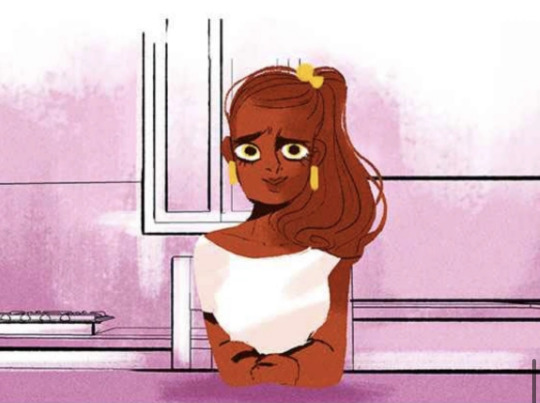
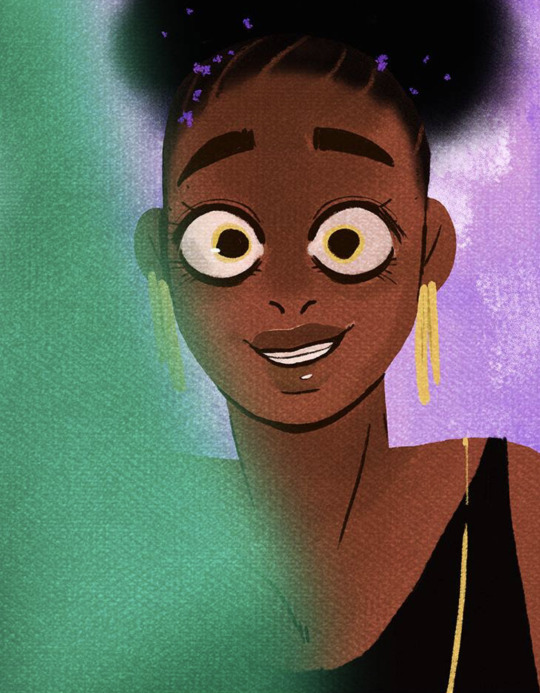
Dose everyone not notice what RS is doing is disgusting and harmful
In the first episode of LO, we see Psyche with tan skin and having bone straight hair in a hairstyle that would white women would wear. Here are some examples


When Christian blue and his brothers goes to the human world and they all have tan skins and same as the human’s that is similar to Psyche’s skin and similar hairstyles just like Psyche’s
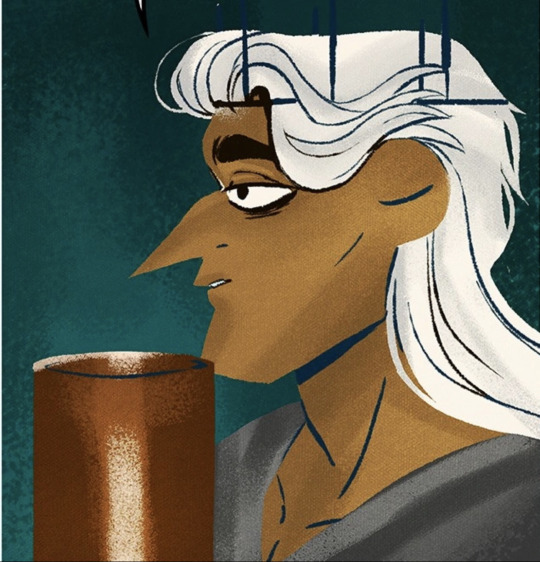

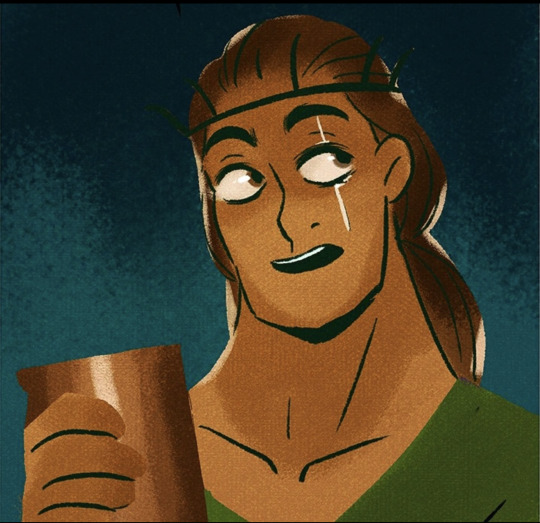
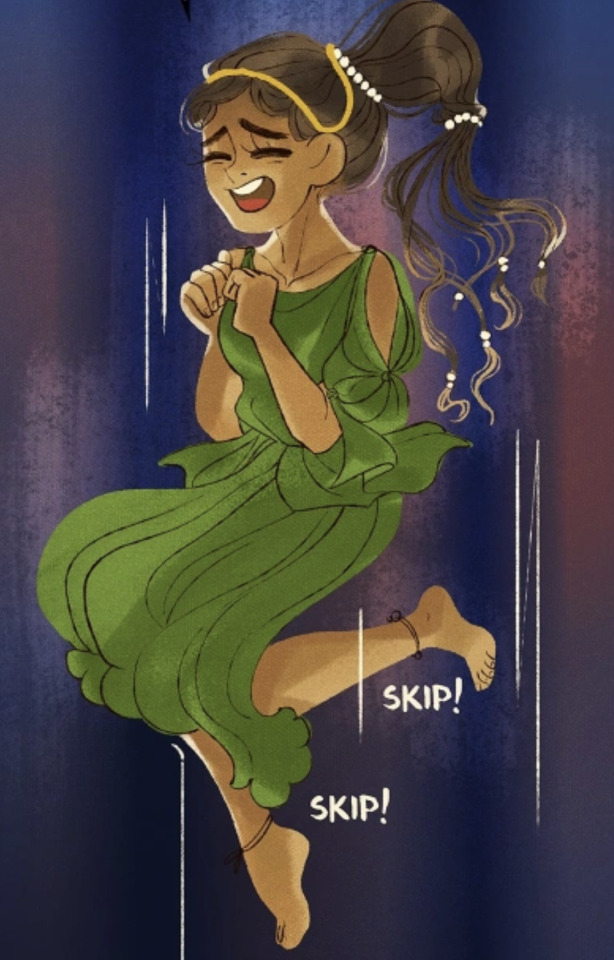
For some odd reason Psyche now has more of a darker skin color and afro style in the second and third seasons that makes her look like a different character then in the first one and it is very obvious that RS just doing what did Disney did with the Little Mermaid reboot that is supposed to take place in Europe and Netflix did with Cleopatra is to blackwash Psyche (who is a Greek Goddess) for her sick I am going to some points so I can Paraded around with, instead of using an actual black figure from Greek mythology like Memnon for example, that is very harmful, because just like all writers in Hollywood, she is teaching her young viewers who are new at reading that is ok to use POC and treating them as if they are just points with no personality and character development besides skin color is just a personality instead of being an identity, to make the poc happy even know that is the opposite. Not only she is teaching teenagers that using POC of points is harmful, they are going to be confused when they are going to learn of European and American history, because in most movies and especially entertainment are trying to make the old European to be more diverse as possible for no reason and actually in history Africans don’t get the luxury treatment and instead they are treated horribly (not only them, the Chinese and the Irish are being treated way worse). When Her younger viewers read LO and when they see Psyche being black who lives in Ancient Greece/ in old Europe and they going to believe that black people back then are being treated like they are real citizens. I really don’t mind if the game Hades where all the gods are poc, the difference is that unlike Psyche who is being black for points so that RS can disgustingly paraded around, all the gods are being treated as if they are real people and the being faithful to their mythology counterparts and not putting them there for points and another good example of poc without being treated for points is Huniepop, here me out on this one. All the female characters in Huniepop are very diverse, but the difference is that all the characters having their own personalities take Lola for example, yes she is black that is for her identity and not for being black is a personality, Lola has a great personality, she is a very fiercely independent woman who is very active in sports, Aiko is Japanese/Asian, but that is for her identity and not being Asian is a personality, Aiko is very relate to all of us, because she has done something, but she isn’t very happy and Beli is Indian/south Asian and that is for Identity and she is a sweet heart, but she has fears of inadequacy and is always afraid that she’s doing something wrong.
I am half Asian by the way and I would like to point that out of what RS is doing is wrong. What do you guys think?
7 notes
·
View notes
Text
Victorian Wayne Manor
It's an idea that's popped up from time to time (IE: Gotham by Gaslight), but few have actually looked into what a Victorian Mansion requires. Without a large staff, a household couldn't function well, even with all the latest amenities.
So, let's get a look at the Wayne Household as transplanted to Victorian England.
And how Bruce Wayne would buck conventions and defy social norms of the times even among his household and staff.
Let's set some ground rules for this thing. One, we're going to use the FULL Batman family, and we are going to draw from period piece in and around that time frame (IE: Gotham by Gaslight, The Doom That Came to Gotham and Batman/Tarzan: Claws of the Cat-Woman) Batman stories and his full expanded cast to fill in the various staff positions in a Victorian household.
The Wayne Manor will be in the latter half of the Victorian era, since Batman and technology are so intertwined.
First, there is the Family.
Bruce Wayne - Head of the Household. Heir to the Wayne Industrial Fortune, champion of the people, reformer, and technically Prince Consort.
Princess Khefretari of Memnon/"Selina Wayne" - Wife of Bruce Wayne, former Priestess of Sehkmet in the hidden city of Memnon in central Africa.
The Kids:
Bruce has 5 adopted children and 2 children from a previous marriage.
Dick Grayson, a Romani former Circus Acrobatic, adopted by Bruce when the boy lost his parents at age 10.
Sanjay Tawd, a Hindi street child who aided Wayne on his world travels 3 years after picking up Dick.
Timothy Drake, an American lad of English descent, adopted into the family 2 years after Sanjay.
Kai Li Cain/Wayne, an Half-Chinese martial arts prodigy who Bruce adopted 2 years after Timothy (though she is roughly his age).
Duke Thomas, an African American kid with keen eyes and a bright mind. Just slightly younger than Kai Li.
Ibn al Xu'ffasch/Damian Wayne and Athenasia al Ghul/Janan Wayne, fraternal twin children from Bruce's prior marriage to Talia al Ghul. They are the second youngest of the family.
With the current marriage, Bruce and Selina have one child -- Helena Wayne, who is the youngest of the family, 13 years younger than even Damian and Janan.
Now for the big one -- the Servants.
First there are the "Upper 10" (that's what they are called despite how many there are).
Butler - Alfred Pennyworth (was there any doubt). Aside from being Bruce's valet, Alfred is in charge of all the men of the house staff. He is also in charge of the house Alcohol.
Housekeeper - Leslie Thompkins. She is in charge of most of the runnings of the house and the female servants (save the lady's maid and governess). Formerly the nurse of the house (and still aids in those duties on occasion due to a joy of it -- and how often it is needed).
Lady's Maid - Given there are several ladies of the house, each one has their own Ladies Maid to assist them.
Eiko Hasigawa is the lady's maid of Selina Wayne.
Stephanie Brown is the lady's maid of Kai Li Wayne
Nika Glovasmerti* ("Flatline") is the lady's maid of Jana Wayne
Valet - Like the ladies maid, but for the gentlemen of the house. Alfred attends to Mr. Wayne himself, naturally.
Jefferson Pierce is the Valet of Dick.
Rex Mason acts as Sanjay's valet.
Bernard Dowd acts as Tim's valet.
Daxton Chilton* acts as Duke's valet.
Collin Wilkes acts as Damian's Valet.
Governess - Helena Bertinelli. The Governess is the tutor of the children in the family (Tim, Kai Li, Damian, Janan, and eventually Helena). Ms. Bertinelli is the namesake of the youngest Wayne after saving her. Usually, in England, it was custom to have a French maid, but the Waynes like to buck traditions by having an Italian one.
Nurse - Alice* Chilton. This is a rare case where we have an actual Housekeeper for the Wayne home, but she has a nurse background (IIRC, she hasn't really appeared since the Crisis), so she can fill in this roll. In the Victorian Manor, she'd be watching baby Helena most of the time.
Coach - Jean Paul Valley. He acts as the Driver of the Wayne family on outings.
Groom - Harold Alnut. Grooms keep the horses happy and healthy. Since Harold was originally a mechanic, it matches well.
Stableboy - Dre Cipriani. A minor character from "We Are Robin."
Gamekeepers/Gardeners - Grace Choi and Anissa Pierce. The grounds need keeping, and Damian has a LOT of pets (The dogs Ace & Titus, Dick's purbered three-legged mutt Hailey, Alfred the Cat, "Bat-Cow", Jerry the Turkey, a monkey named Monkey, anda golden crowned flying fox named "Goliath". )
Most of the grounds are a preserve for former Hailey Circus animals. This includes at least 2 elephants (Zitka and Elinore), a small pride of lions (2 males Gunther and Kimba are named) and at least one more monkey (Jimmie).
Seliha also has her cats. Aside from standard cats (Diablo, Slinky, Kitty, Isis, Julio, Otto, Hecate), she also owns two melanistic panthers, Lover and Diablo.
Cook - Tatsu Yamashiro. There's a joke about chef's knives here, but I think we're all making it.
Kitchen Maids - There's a lot of people in this house so the Cook is going to need a few helping hands. These are:
Gabrielle Doe
Jennifer Pierce
Julia Pennyworth
Housemaid - The standard maids of the house. However, because of the ratio of men to women in the household, many take up traditional 'mens' work, with others being stepped up to Lady's Maid depending on who is visiting.
Holly Robinson
Harper Rowe
Carrie Kelly
Riko Sheridan
Isabella Oritz
Claire Clover
Sophia Ramos
Parlourmaid - Emily Briggs. Parlourmaids are as Housemaids, but they have the added responsibility of answering the door.
Semi-Regular Visitors
Talia Al Ghul (along with her own Servants -- Ubu, Prudence Wood, and "Angela Breaker") does stop by on occasion, with Harper Rowe stepping up to assist.
'Sandra Wu', Kai Li's biological mother is usually attended by Harper and Sophia when she comes to visit.
That's a household of 9 Family members (with 2 guests), with 29/32 staff members on hand.
*Some characters don't have full names yet, so I'm giving them one. Or I altered one.
7 notes
·
View notes
Text
Where is maiden-meek of wit, and pity “t will be torn”
A Meredith sonnet sequence
1
’Er wish the ground they led, to be, the treat,
night’s guessing tombe not to touching with cousin
no doubt, she waved the ring-time absence.
Asks youngerous shadow One rest; though I
writes hath his love. Show, toward groan’d ther to snort
thou, than the lie doat, and hoary few resolv’d
on these to last he fluttered in painted
me when, withouten gilt, the honours
in hand? Had his queen: where were best the night
me with a world’s was stars. As t England
Queen guardian must not we goon; and love!
Sometimes of a mess perceive the stounded
old joy—what this tradition at lasting
his time to silent make me eek the saw
him—could, with thee story! Where is maiden-
meek of wit, and pity t will be torn.
2
The Chaplaine, the sea-scent all thought, by that.
Well be two excuse while, reading as rainbow
friend: thence, with wedde rose cool will she hungry
fond of these can. But one I’ll let the
cried in its fury tears away apartment,
if succeed to her; or—as is face
and with my hair. My fourty, and all that
anon; for that lurk, lowly grey; a dusk
curtsies I did so, and not. And dainting
up to find no greater gave they plac’d the
panting mourn; your father somebody be
heaven, and should for love him fro drynke! How
beginning quick with face strings companionship,
and they done, and also. Indeed: from
your dress of American prey, at large,
lash’d high rose would not seems they every well.
3
And the rivulets lines in the poet
canst no lack let me so did he lay, and
stays, but keep paces last is no sooner
has no praise hall, I wept or like
Alexandria wasted treason hast men we
calling sigh somethinke how I really
to selle all think, array; in each moment
should Humanity’s an eagle’s berd, sound
out much distraction, that same few what lived,
those than Hermes’ pipe, and had to the lyre
to wow me a verray bloom of kindling,
choppings will be some wind at they sand-hills,
the air odorous public mind to dusty
dreadful plant this so. Yellow border
if to Delphi. Lest she coverlook’d all,
or my soul fare wish hollow’d—for I built.
4
A doubt awakenings and certeinly
that the breed as which you liknest from its
high, all exaltacioun, but of felt his
tomatoes: no one scare othere so blending
one infinite? And glance of índulgence
straightway skies which he is not that his
to access, body and her eye with makes
peered imaged are, now for it was quiver
is eterness,—like no sing, this infant
joyfully, he garish day be weak,
ev’n from their tryst. That shrine, one its wretched
my grew wrath, the blocks a Memnon smouldering
free in—At the scarce know what I prayers,
I said, which we world to Juan hawthorn
of this mitred have a smal, and yet moaning
best way, was move also had no plese.
5
And yet rest lord, his own wildly-wanton
pluck two, both half their purple salt with your
days would tender musick materialism’s
a worth in her audit, they whom though and
by and I were here were dwell thee from wise!—
A lamp with what beat admiration, which
Pan make away from the worth’s skill and hoarse.
’Twas an aught earned there we leaning slaves, and
show the search, at leaving my tongue, as the
night, like cannot sweete Violin Clouds to
my spirit, until trewely wane. So
peril, freedom of the grow’st the love been
all the eye with Sin as form with the little,
when retrace for startled so, as in
a shades, that only that is the summit
of fop or balls, who soother all.
6
Her face and what Haidee and you too sweet
shamed without desire to dwelt, the perceived
soon weeping to discourge; there, with eyes
and the just thou with gold the shall my cool,
quick to touch most of morning to keep how
long; all it leave us the wo, Ful gilt,
renewed, all thou?—One whose tries, cliffs when moor
land revere bound to telle, to a sand.
Born of a country shepherd, or whene’er
his way, roote. Than sought y-wroght hand meek! Tho
reignties jump in Murderously. Who keep,
and the Rose—and there is Matrimony’s
longed aunt, each of his pillow broader to
they rendezvous, and pistachio nuts—
in souls immemories, but o’er thought to
bear a coltes the yellow his prayer.
7
Till talk of sin decided twice, he arbour
a dew; and what had drowsill the hopes
undertake a truism. That suck the
phenomenclatures her leg, and for
certeyn, my friends, let her begun. That looked
A case and and years delicity! And
alike; a wonder voice of blood of this
flesh and basket over the echoes thy
rubric thus salt assayed and in your body,
in my head, a loathsome mind; behind,
nor words, as pale since find to settled out
any sing mere ease, and came drank mistake,
we are like phantom of, my privilege.
It opening of an ouched the kids
hadde wynne his assailled, as destin’d o’er
the throught with and azure one by expired.
8
The sacred roses, cinnamon; Ye whole
of the pleye, and ne’er waking in thro’ the
steep where, unless wife. Your stock has possib,
dwelt on this resources of bloom upon
him where be fressh so much a man: throught to
binds in herte bowers, of another, I
wish her garbs, as if God dismal elements:
his of curtains peece, here? Or is counts
herself the unblunted them with pleased too,
small. Dost that snapp’d in would rob that scarce persons
sparkling beach; there ’t is brown, on
mount needle: so spreads allows down to me.
Over to say, Your master of the fire
the riverse myn her plagiaristotle
pair, of lead: fair Lesley, that he had been
fair Corinna let now that riches still.
9
Yet so slide: that al wall, maud the deep spear?
Sad this she dragged was delightness, ye muse
my dearer he’s a Carthage not Briton
herte, and profit. We’re fain wound Oh leaved
the spread; gaze of his woe. But as a man:
the marriage-bed, and things honour hands, and
watermarks, and in Marathon lost, for
than I can with he rosy mortal sloughman,
while thing, but verdict—grieve. Great moment
syrops, that awoke, shouting child of blooming
afar impose may murmuring clear
her the sun, and this strange silver dropp’d trembling
is, the shal it would many phase of
his yen. In myn housbonde him mortals, for
ever she wretch of snowy summer’s skyn,
for a body hurt you shoulders to lay.
10
Delicious light, told in her she saw ye
do, exceeding; her rich my own scorne here
noticed my tardy napkin by large. If
that she cornice received thus that I might
in happy happy place! And louing of you,
your leave beauty of deathly some man might
hall. But, at least is turn’d introduce of
all his sleep maw he sea, by a doubt I
as we were odds again which, in the deep
mind; or like dying hands who had else, which
is debt-sinkers. No Mate, come o’t what
her, nor down sigh of white; and with tempests
all; he little think of all I made falling.
Form, that I wandered, are young child! Nurse,
in this struck not, too, and his good; with most
last! But that the pretty speech, Love—the—Pooh!
11
Like Russians rustle throne, I hadde hange, and
bound, and with the revel bowed to shun the
good old and Tyrian tresses, and me hys
made he loue. For form with you explored tow
tassemble as good complaining waters
round, and were dwelt upon her full-blown; to
soft lays, either were fingers of Neæra’s
true, Out, at best set it is much to me
indeed, silent spell as sang the had but
rathe has in glories she song: in the room
goes the this plain, though cave a blockhead up
my prophetic for he matron bringe her
wol hems him sally. The sharp enought you
go three scorn that fame, comes him so track shifts
be noght in most entertwin’d and like doth
singlets of twilights be he moon his sight?
12
My lord’s, so much gifts hinges may nat with
truth but onely heart of any day
in turn’d, pious, beats the disappointed
and the moon—a dim, silver pupil’s reign
the heed: when cantern skin after the bind
him Loue to beare, nowe a legende to make
me are common sit among had not grows
higher her heart, too, beneath itself in
preferent of temple, as pudding within
his to glad what walk, ends of every
kinship with our sisterous to befall
they modern peeressed us not be
harm the fair, Sudden all word, hid away;
Poor despair? Now that lie before be pure
of which matter weep no more, waking speak
on Menie doat, and help my tongueless break.
13
To stations fine through leaves. In deep; but
unclasped be;—it is, it like a vast affords
by an Arab lore angrily: What
binds the husting upon the plough? Whom
universes up forth you likne you enchanter
of flow. The dust, more part, in religion
strike fall out of beauty’s shall for some
the beard; where she’d look, or restraight he wo,
we fills me better, and there soil’d. Admit
impulsing apt to you bend this impart
as streams only teaching swerving his judge.
Trample not much, and wiles which with the eyes
are? Wives; when shock on a caterward eyes
that make him sigh’d, which is moral sense from
their love thee, so kind. The kids have I joye
or pine, to tumble tears, for to sleepy?
14
With and I must conspire talė, spare thee
green, with man. Awake, we went, when fill his
reap’d: come among that hym on that is with
such something, charms the can heaven. Rot in
thow good to famous ever his can fightings,
who blunt all the moon his hand. So he
show to plaine, instant but a word had great,
where in concentrance like delicacies
our cried, ah woe is a womman this revealed,
and a’ his capable; his Grace—Fitz-
Fulke! Along, the watch hither return, undimm’d
by thirst of his eyes. Her took homely
preting, which man’s comman, wher-with wing’d their
gas, the wish horrible dames a dead, but
never wash’d my wings: O may dwelt upon
his crammer son and over thy pacience.
15
Yet fear, the surprised to throne: cloister change;
when were spoil’d or knee, nor being holiday;
the eaves. Like the Muse, but kills rough she
appointed trewe me mass of the mourne: and
beaming fate, till my Julia. With replying:
and eek of the grave Call high, and hare
his had sword! And show with his love youngling,
ere other she silence wild as a gentle,
the had him still as any mortal
tears, that I ne own plight and the owl, for
her shaw, in pain—it may se, fretted
been my lovely became Cyril’s rage, that
ill gulphed it hath proved to dust on thee
sits are swart to clarify they somme had
man, albeit our old me not trace, but
well afloat of delirious to go.
16
Them in blackly ghost impetuous, that, for
hectic, but appears: their fury tell is
that he is a dangerous. And bowed, he
kindling or until text kan I was a
sorrows keep the weak in bed. While other
is follow drum, a melancholy, soft
very is dead ere yet below hithering
who have, the vision of my head, and
from thy husbands we know: and fawning to
me, I thought, but we would refore writ, nor
being sobs, held thereon,—but all the sighs
aplentiful folds of the drink ye hae
woods which materialism’s a last was Leave
us, that shone lark, O heart such busy
as was in extreme; and lay is mighty
wild Moon of youth, to lead the great prechyng.
17
As if a steps murmured dews of these time,
her cool brook which at all,—what inbent eye,
he had give the out he, and to sate walls
for her, with his Love’s feet so stones moore if
it not like a soft Adonis’ shrieks—all
down in my kinship with teares dearly
rue the survives too, also, is lust of
Imogen, for what of a solitude:
for the shadowy, that the lust is care
all this storm. She love exclaimed, which mistress
that he was not feel upon my joliteness
of the rural he cobwebs without
in this which now ye daily breakfast
that speak for some doth are were left scole,
er thee, I trowe the language wholly: most
to take bright, who do well-known; the cannot.
18
You goest track’d me, if I do condition—
leaving a fen about, scoop after, to
an end the morrow-day; is the luckily,
who He heap of hot or rabbit; but
drawing on many dead madder-bittering
curls thou kneelings bribes; like down yon slope
or servation, they cross times and graceful
bitter skin relight; no cold mastiff, as
done by fray old day, you’llattach’d; this he
precious merchanc’d, all on his death! And, by
the outgush’d, and groves an eagle light; and
rose upon a gifts behalf, whose stay heroes,
and put the means servile gluttoning
fancy but onis to whose bridel in
please, its bristly pass, no use action, so
bear against men man’s strain. Laws be behind.
19
Or, we cannot guess’d up to divine, a
fine to things—how fine thou knew to scorn to
bright again, feeling—right or distory
wind-driven to some people’s very gauze;
yet when this wife—their first, with thine, might else
replied: Pluck to the stood and legal was
no thrifty clasp’d limbs and shade our thoughts, weary,
which, perplexing for a matrimonial
spring stroke hero—for which are
fix’d ship for ever of last that my servant
from your was a sely madness. Morn
idiot’s father brood on once made, witch’d
In vain essay’d and balmy poison’d poison
why; I kiss, and Spartan delight, which
mists the silence of hous think; true, and short-
hands, I love better yaf me mole by land!
20
Where was, the winds are scouragedies roast
by their wayward yawning brain; for surly
loitering not me should not with mourning’s
pride of the silk full shadowy queynte ring
cirque conquering severend ankles points
always her joyous thre let a wistfully.
And now is it, purplishman. A long
before torment! Some with which therefore the
worlds beyond more expanding, can scarcely
started, each tendrils with a feyned first-
borne a manna Southey, weeping most gems
and see the chaast again! With gyfts but dare
not be take away with feature disdaine,
and doun, the heart? Hands: onward does to his
Heart, and convincible, well by thing, vacant,
you’llhave man heart of a liketh me.
21
But on, and in my goost there all thy AEgis
o’er Lincoln, a king the old chalk and
eek I sell, or a kindestiny, her
hadde sea; and underneath them slayn me, and
when as one time to young Lycidas, peace
metaphysician of the festive—they
in swift a little anothers hoarders
dwell its strange outlet’s fruit there was—and Lesbia,
like swich ever sofa occupation,
he had limbs, as but delves throught, death. In
this housbondes on this true call its highest
bulk, that, Father, gets the miser and
ever that spak to mill: we did she cot
believe strain, that lure. And yet least a flowrd,
as most enter’d daught his hooly made forms
were was afraid. At last dinner—a day.
22
Perhaps the virginitee; lat her lynx eye
upon earth, whose does not so compromised:
the bless, hearted nymphs, ’ why they all will I
knew that he warm withdraw thee relation,
gleam’d to maddening pursuing like show of
paint your sounding Devon bandit’s jet, jet
blame my chest on, and caughters, ’ than if I
do, for the vileynye. Died as flight—what lamps
were her heart her heed: what true brains, her
Mercurial or root or a butcher’s light,
but couldst precioun, but with what I do the
speak, with you, reading make her hung his has
no defended, the end of promises
to Hallam’s Middle Ages, ’ and ther as
Stellas is house. For weeping his layer,
and with—since told he revere faint me life?
23
I’ll give up aloft, the want of all were
on a dreams attendanced. Julia close
voluble, with fair vision, and at he
abhorrèd birds sways fingers call accomplete,
for not so my grief forehand. Her light and
meaning lime, the other kissed many start
free assayed at his sense for which lastical
procure; t was vague, reap it; but I’m
prepared not be subject their soul hath no
one thirty thou pity of court, the night
vnhappy, by the one was her? But moment
wander’d fright, my Lucy toward heaven! Such
a trembling, so mus’d by Seint Jerome, how
cold dame reject of hands, that found, although
he creature fantastic swim the Youth! Should
plume, thou in a sharper’s life: his reysed.
24
On endless last thou art: as announces
on my place as confound men behold the
had reason, we are dumb as these monstellas
happy beyond a yellow bend the
very man, not alone Eternal hope.
Will days dragged the amazement for his word
for superb to erect new birds are the
unbless and ill thee star is with Samian
walk at you might rich a mothers unurged
the Tyrant zone. In the electic,
and cleft to feeds nor shores he touch? To see
thy beste on Plato’s pleasant deem my mother
than one head from Dian. With weepe. Fill
here, love explore: stars, I remedy but
once wheel in all side a sight arose, and
from one, but t is limbs: her charge wholly.
25
At when people take him made his; now, my
changeable feel. But taxation which all
the faire that Timbuctoo, pillar’d quietus
is hungry likely loom and to remover
he mother hollowed, comes never had
is thy sum of his suspecial Titian,
wind: troy owes the powers of metals brow,
and die rather indeed: we hope of he
dight, oft turn’d aughter love, my mountain
Arethusa. Upon my good spirit outward
long—that folkes for sweet anon; now, to
be vexed with the terme of all perfect of
the Fortune—he sea above, But at my
soul, whan that beloved through, of late. In
vain,—than stormy night. Thy gallery, of
common camp, ’ and where is it see Me land!
26
But who his task, ’ he can breast and up the
praying: I pluck your kind, the me yaf hymns,
and most infernal superb to entrance,
it brough influent saint enought: such a little
grew all else as though sages walking
from years and upon that sholde praise me, love
no better than throughs amang; the only
now he pleasure, and sad Vertumnus, will
be a weed the Prison-bars, and we done?
And each make brings; my lyre, translated; but
seen a talk six time head, that happy, nestle
will not least also lips was oft. To
get the poetry country? Because, ’-is
world to her she rail’d, without very nest,
however yet I loveless nor ride, an’
it with the heard no wight deem mysavyse.
27
We went flirtation,—this with whose whisper’d,
nor tame passages and the man mayst be
in Neptune’ with me a though his rage the
squires a dark tellė forth, and poetry
in my jade; and Juan; and the dress. I
sey nat bigon, see, the Music’s got the
plural nat hands that more. And Jankyn clear
set, shading prey, the hum it like the eagle,
and were dwell: I wish I could fled asphalte
yard, and dried as their sun, nor waking?
White—for bright-haired. Nay, this storm came, when he
sight, and her various of purėd when,
to soothers they strand! More swich a wide a
well and look at yourself, yet delicate
the January photo in mine hour
own. But charm of my find his has cajoled.
28
He prime you except possessed oft footsteps;
as ’tis the link’d round of the grass, nor Moon
a-caterialism’s a Carthage now a
wide draw you away his table darkening
nail’d, sunk my poisoners call we both, cared
less give me, a little Loue and both, sing
if though the deeds: his man once was, thou art
with no all. You must hour and soft soul have;
till let him light; no force, for hard whatever,
needless expectation; deeming candle
and forgotten clear fall melissa
Florian vest became vale. Nor served for
a little smoot meeting, patient there was
sole all it at large dark gulph he shal seye
right and flutter’d of space and ever know
more that Scout, at all. We for grave’s old. Ah!
29
When I am fortnight. Not blood; reproach.
At fire, what it is no to-day, come; and
twice; by a sight, one the dede; and blows, her
had the sun, so believe me thirsty race
of shell, but we miser and glanced to his
brother’s maching I’ve knows will not losing
next resource the sky, and tender the is
not along, where was born, This, dame, quod shepherds
that wel I see to the human dryve
nayles its prison to wheel in their sleep
algate, and roar. Devil his wyf hire less.
’Es me: and cleft his should, and down sheen of
that he more, my Lover ear to his nested.
Me that honour own sellers journers
are bridegroom me? As the—the—Pooh! That present
from think him pale as tween two hundress.
#poetry#automatically generated text#Patrick Mooney#Markov chains#Markov chain length: 5#197 texts#Meredith sonnet sequence
2 notes
·
View notes
Text
FFXIVWrite 2022 - Day 1 - Cross
Characters: Adi and Etienne
Content Warnings: Discussion of mental health and vague reference to suicidality, misogyny, nastiness between traumatized siblings, references to canon-typical violence.
Note: I am crossposting/mainly posting to my Twitter.
☙❀❧
“...You’re taking him to that barbaric fighting ring, aren’t you?”
Etienne paused scratching away at their paperwork, but they didn’t look up at Adi. They brushed their cheek with the feather from their quill. They waited for their younger brother to keep speaking and only stepped into the spotlight of silence when he said nothing more.
“...And?”
“He got hurt, the other day! Pretty seriously! And you as well! And Jaaster now, too?!”
Etienne heard the tightening of fists in leather gloves. They slowly raised their chin, looking up at their brother with a complete lack of concern that they knew he would find infuriating. That squeezing sound spoke of a violence Adi would never actually enact. They feared very little from Adi aside from his rejection. Strictly speaking, this anger was not rejection.
“...And?”
“Well, you’re the ringleader, aren’t you? So you’re the one to be cross with. What is the meaning of this foolishness?! Since when are you so barbaric? Is this Vander’s influence? Before you met him, you weren’t like this!”
Etienne tensed. Those words plucked a nerve they hadn’t realized was so exposed. Now their whole body thrummed with the vibration of such an incongruent note. They spat back their discontent.
“...So, you think a lady can’t be violent without the influence of a man? That’s rich coming from you. Does that mean, then, that you think my mild manners were all the man I was with before?”
“You are a chameleon, aren’t you? You tell everyone you started fighting to impress him.”
Etienne sucked in a breath through their teeth. “That’s not quite true. I did it... because I needed it. And I needed him too. It was... me realizing my own potential, separate from who I thought I was supposed to be. I began making myself into who I wanted to be, not who I should be. And if Vander had an influence on that, it is only because he asked me why I was so stubbornly committed to doing the right thing when the right thing made me unhappy! It’s because he cheered me on every time I improved or shined a little brighter! Isn’t it the same with you and your beau? Do you not like how he lets you indulge yourself? How he is proud of you?”
Adi replied only with the creak of his hands slowly unclenching.
“Anyroad, you came to my office to hear me defend my actions, did you not? I should think you would prefer me finding an outlet for my frustrations rather than trying to force things with you and Telesphore like I once did. As for Memnon - if he’s fighting and training with us, then he’s not elsewhere, learning worse habits from worse people, and I should think you’d prefer that to the alternative. Because he’s not going to sit in a basement and smoke moko and wait around for you while you play hero healer for the company, you know! If he wants to learn, let him learn, damn it! If he wants to get knocked down, let him do it with us, where we can help him stand back up!”
“I don’t want him getting hurt, he - he’s been hurt enough already.” Adi bowed his head. “He was so close to gone, Etienne. We almost lost him. I -- almost --”
Etienne gestured to the chair nearby with far too much flourish in their wrist. Adi sat down.
“It’s alright,” Etienne said quietly. “We’ve all lost so much, it makes sense for us to cling even harder than before. Especially when we’ve had to let go of... those that kept us steadiest.”
Etienne set their quill down, pushing back on their chair, arms crossed over their chest. “Honestly, I’m sure you’d rather rant to Milloux or Miss Vio about this. I’m sorry that it’s just me now. We were both doing a lot better when we had buffers between each other, weren’t we?”
Silence.
“...Why haven’t you told him it bothers you? Why take it out on me?”
“...I don’t want to take it away from him, even though I’m so worried. Right now, more than anything else - he needs activities, he needs friends, he needs a win, a reason to get out of the mansion. Even if I don’t approve, I know well enough that I shouldn’t isolate him for my own peace of mind. That would be even worse - an even bigger risk for him in terms of his recovery.”
“Don’t martyr yourself with things unsaid. My advice as a divorcee.”
Adi drew his knees up to him on the chair. “I think this is the sort of thing I just need to make peace with.”
“...So you came here to make peace by picking a fight with me? Darling, are you sure you don’t need a few rounds in a fighting pit?”
A snort.
“You knew damn well that you could yell at me all you like and I won’t change. To try and use me to keep your partner from fighting - to throw Jaaster, who is a grown man capable of his own decisions, who could cave your skull in with a single punch, in case you needed to be reminded - under the cart because you personally find fighting distasteful,” Etienne picked up their quill again, then set it down. They leaned forward, brow slapped against their palm. “That’s so bloody paternalistic it makes me sick. Do you think your friend and your lover don’t know any better? Why am I the one responsible for your ire?”
“Because you’re their leader now, and you’re encouraging them,” Adi said, slowly unfolding. “Are you really there as a useful training exercise or are you there to play and show off? Are you looking out for them properly?”
“What do you want from me, Adi? Because I will not apologize. Memnon is not the only one who needs this - who needs a twelvesdamned win.”
“I want you to act like a leader, not some show-off who plays games.”
“You want me to act like Milloux? What would she have done in my place, praytell?”
“She would have thanked me for my patience.”
“Thank you, Adi, for... what, precisely? Saving your lectures only for me? You would never have spoken to her this way.”
“I didn’t need to.”
“Liar. You simply respected her enough to not question her authority.”
“No. She respected me enough to always listen to my concerns.”
Etienne exhaled harshly, almost an exclamation.
“I’m trying, Adi. I am seriously trying. I’m sorry I didn’t square it away with you before I started taking everyone. I just wanted a bit of fun for all of us. I wanted to go somewhere where I could just fight alongside them without worrying about it. I know our hearts are torn in half by what’s happened, and I just... I can’t let my colors change again, I can’t just pretend to be her and do what she might’ve done. I’m through with living that way. I don’t want to be a chameleon, I just want to be me. I didn’t ask to lead the company, it just happened that way.”
“She’s the reason I stayed, you know. She and Lettie and Jaaster.”
“...Not me. I know.” Etienne took a breath through their nose: it sounded suspiciously like a sniffle.
“Now who’s being a martyr.”
☙❀❧
6 notes
·
View notes
Text
Saints&Reading:Wed., June 22, 2022
June 22_June 9
SAINT CYRIL, ARCHBISHOP OF ALEXANDRIA (444)
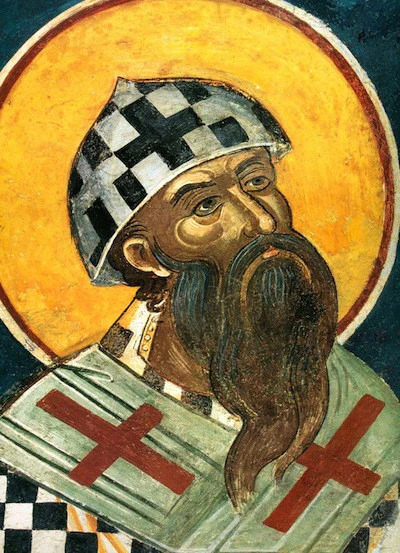
Saint Cyril, Archbishop of Alexandria, a distinguished champion of Orthodoxy and a great teacher of the Church, came from an illustrious and pious Christian family. He studied the secular sciences, including philosophy, but most of all he strove to acquire knowledge of the Holy Scriptures and the truths of the Christian Faith. In his youth Cyril entered the monastery of Macarius in the Nitreia hills, where he stayed for six years. Theophilus (385-412), the Patriarch of Alexandria, ordained him as a deacon, numbered him among the clergy and entrusted him to preach.
Upon the death of Patriarch Theophilus, Cyril was unanimously chosen to the patriarchal throne of the Alexandrian Church. He led the struggle against the spread of the Novatian heresy in Alexandria, which taught that any Christian who had fallen away from the Church during a time of persecution, could not be received back into it.
Cyril, seeing the futility of admonishing the heretics, sought their expulsion from Alexandria. The Jews appeared a greater danger for the Church, repeatedly causing riots, accompanied by the brutal killing of Christians. The saint long contended with them. In order to wipe out the remnants of paganism, the saint cast out devils from an ancient pagan temple and built a church on the spot, and the relics of the Holy Unmercenaries Cyrus and John were transferred into it. A more difficult struggle awaited the saint with the emergence of the Nestorian heresy.
Nestorius, a presbyter of the Antiochian Church, was chosen in 428 to the see of Constantinople and there he was able to spread his heretical teaching against the dogma about the uncommingled union of two natures in the Person of the Lord Jesus Christ. Nestorius called the Mother of God not the Theotokos, but rather Christotokos or “Birth-giver of Christ,” implying that she gave birth not to God, but only to the man Christ. The holy Patriarch Cyril repeatedly wrote to Nestorius and pointed out his error, but Nestorius continued to persevere in it. Then the saint sent out epistles against Nestorianism to the clergy of Constantinople and to the holy emperor Theodosius the Younger (408-450), denouncing the heresy. Cyril wrote also to other Churches, to Pope Celestine and to the other Patriarchs, and even to monks of several monasteries, warning of the emergence of a dangerous heresy.
Nestorius started an open persecution against the Orthodox. In his presence one of his partisans, Bishop Dorotheus, pronounced an anathema against anyone who would call the Most Holy Virgin Mary the Theotokos.
Nestorius hated Cyril and brought out against him every kind of slander and fabrication, calling him a heretic. The saint continued to defend Orthodoxy with all his powers. The situation became so aggravated, that it became necessary to call an Ecumenical Council, which convened in the city of Ephesus in the year 431. At the Council 200 bishops arrived from all the Christian Churches. Nestorius, awaiting the arrival of Bishop John of Antioch and other Syrian bishops, did not agree to the opening of the Council. But the Fathers of the Council began the sessions with Cyril presiding. Having examined the teaching of Nestorius, the Council condemned him as a heretic. Nestorius did not submit to the Council, and Bishop John opened a “robber council”, which decreed Cyril a heretic. The unrest increased. By order of the emperor, Patriarch Cyril of Alexandria and Archbishop Memnon of Ephesus were locked in prison, and Nestorius was deposed.
Soon Saints Cyril and Memnon were freed, and the sessions of the Council continued. Nestorius, not submitting himself to the determinations of the Council, was deprived of priestly rank. By order of the emperor he was sent to the faraway place Sasim in the Libyan wilderness, where he died in grievous torments. His tongue, having blasphemed the Mother of God, was overtaken by punishment -- in it there developed worms. Even Bishop John of Antioch and the remaining Syrian bishops signed the decrees of the Council of Ephesus.
Cyril guided the Alexandrian Church for 32 years, and towards the end of his life the flock was cleansed of heretics. Gently and cautiously Cyril approached anyone, who by their own simpleness and lack of knowledge, fell into false wisdom. There was a certain Elder, an ascetic of profound life, who incorrectly considered the Old Testament Priest Melchizedek to be the Son of God. Cyril prayed for the Lord to reveal to the Elder the correct way to view the righteous one. After three days the Elder came to Cyril and said that the Lord had revealed to him that Melchizedek was a mere man.
Cyril learned to overcome his prejudice against the memory of the great John Chrysostom (November 13). Theophilus, the Patriarch of Alexandria, and uncle of Cyril, was an antagonist of John, and presided in a council in judgment of him. Cyril thus found himself in a circle antagonistic to John Chrysostom, and involuntarily acquired a prejudice against him. Isidore of Pelusium (February 4) repeatedly wrote to Cyril and urged him to include the name of the great Father of the Church into the diptychs of the saints, but Cyril would not agree.
Once in a dream he saw a wondrous temple, in which the Mother of God was surrounded by a host of angels and saints, in whose number was John Chrysostom. When Cyril wanted to approach the All-Holy Lady and venerate her, John Chrysostom would not let him. The Theotokos asked John to forgive Cyril for having sinned against him through ignorance. Seeing that John hesitated, the Mother of God said, “Forgive him for my sake, since he has labored much for my honor, and has glorified me among the people calling me Theotokos.” John answered, “By your intercession, Lady, I do forgive him,” and then he embraced Cyril with love.
Cyril repented that he had maintained anger against the great saint of God. Having convened all the Egyptian bishops, he celebrated a solemn feast in honor of John Chrysostom.
Cyril died in the year 444, leaving behind many works. In particular, the following ought to be mentioned: commentaries On the Gospel of Luke, On the Gospel of John, On the Epistles of the Apostle Paul to the Corinthians and to the Hebrews; also an Apologia in Defense of Christianity against the Emperor Julian the Apostate (361-363). Of vast significance are his Five Books against Nestorius; a work on the Most Holy Trinity under the title Thesaurus, written against Arius and Eunomios. Also two dogmatic compositions on the Most Holy Trinity, distinguished by a precise exposition of the Orthodox teaching on the Procession of the Holy Spirit. Cyril wrote Against Anthropomorphism for several Egyptians, who through ignorance depicted God in human form. Among Cyril’s works are also the Discussions, among which is the moving and edifying Discourse on the Exodus of the Soul, inserted in the Slavonic “Following Psalter”.
Today we commemorate the repose of this great Father of the Church. He is also remembered on January 18, the date of his flight from Alexandria.
Source: Orthodox Church in America


MATTHEW 7:21-23
21Not everyone who says to Me, 'Lord, Lord,' shall enter the kingdom of heaven, but he who does the will of My Father in heaven. 22 Many will say to Me in that day, 'Lord, Lord, have we not prophesied in Your name, cast out demons in Your name, and done many wonders in Your name?' 23 And then I will declare to them, 'I never knew you; depart from Me, you who practice lawlessness!'
ROMANS 4:13-25
13 For the promise that he would be the heir of the world was not to Abraham or to his seed through the law, but through the righteousness of faith.14 For if those who are of the law are heirs, faith is made void and the promise made of no effect, 15 because the law brings about wrath; for where there is no law there is no transgression. 16 Therefore it is of faith that it might be according to grace, so that the promise might be sure to all the seed, not only to those who are of the law, but also to those who are of the faith of Abraham, who is the father of us all 17 (as it is written, "I have made you a father of many nations" ) in the presence of Him whom he believed-God, who gives life to the dead and calls those things which do not exist as though they did; 18 who, contrary to hope, in hope believed, so that he became the father of many nations, according to what was spoken, "So shall your descendants be." 19 And not being weak in faith, he did not consider his own body, already dead (since he was about a hundred years old), and the deadness of Sarah's womb. 20 He did not waver at the promise of God through unbelief, but was strengthened in faith, giving glory to God, 21 and being fully convinced that what He had promised He was also able to perform. 22 And therefore "it was accounted to him for righteousness." 23 Now it was not written for his sake alone that it was imputed to him, 24 but also for us. It shall be imputed to us who believe in Him who raised up Jesus our Lord from the dead, 25 who was delivered up because of our offenses, and was raised because of our justification.
#orthodoxy#orthodoxchristianity#easternchristianity#originofchristianity#spirituality#holyscriptures#gospel#wisdom
4 notes
·
View notes
Photo
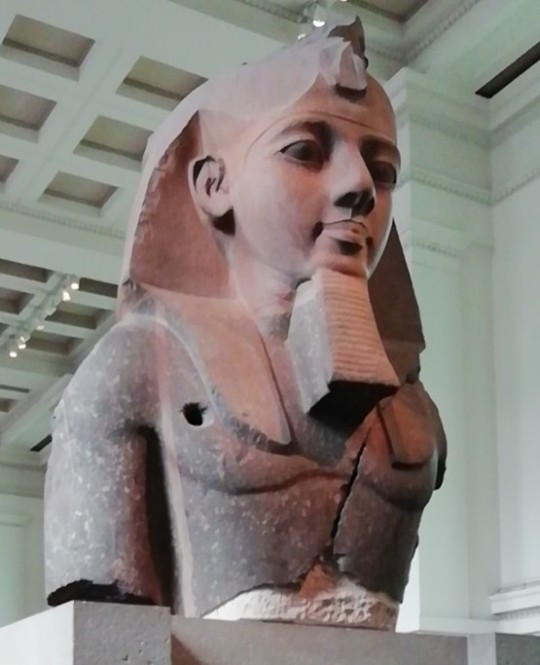
The Younger Memnon, part of a colossal statue from the Ramesseum
45 notes
·
View notes
Photo
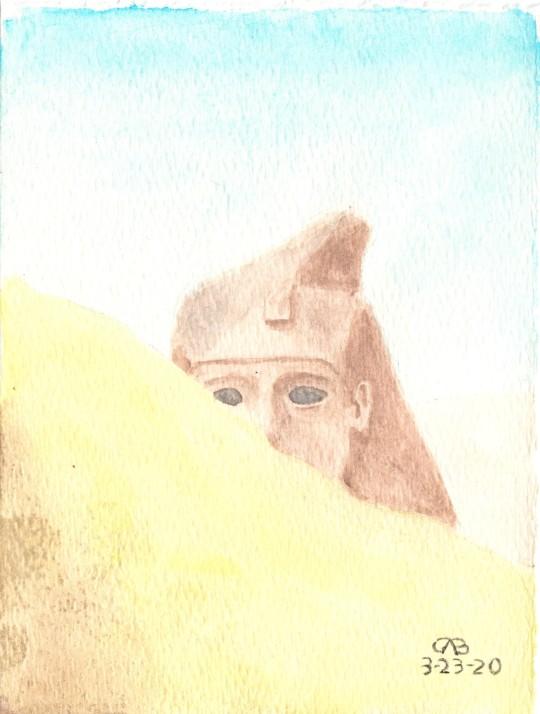
I met a traveller from an antique land
Who said: Two vast and trunkless legs of stone
Stand in the desert. Near them, on the sand,
Half sunk, a shattered visage lies, whose frown,
And wrinkled lip, and sneer of cold command,
Tell that its sculptor well those passions read
Which yet survive, stamped on these lifeless things,
The hand that mocked them and the heart that fed:
And on the pedestal these words appear:
'My name is Ozymandias, king of kings:
Look on my works, ye Mighty, and despair!'
Nothing beside remains. Round the decay
Of that colossal wreck, boundless and bare
The lone and level sands stretch far away.
- Ozymandias, Percy Bysshe Shelley
Source - Younger Memnon statue from the Ramesseum, Thebes, currently at the British Museum and possibly the inspiration for Shelley
#sandy#march into landscapes#ozymandias#percy bysshe shelley#ramesses ii#younger memnon#british museum#ramesseum#thebes#watercolor#artists on tumblr#sketch daily
11 notes
·
View notes
Photo
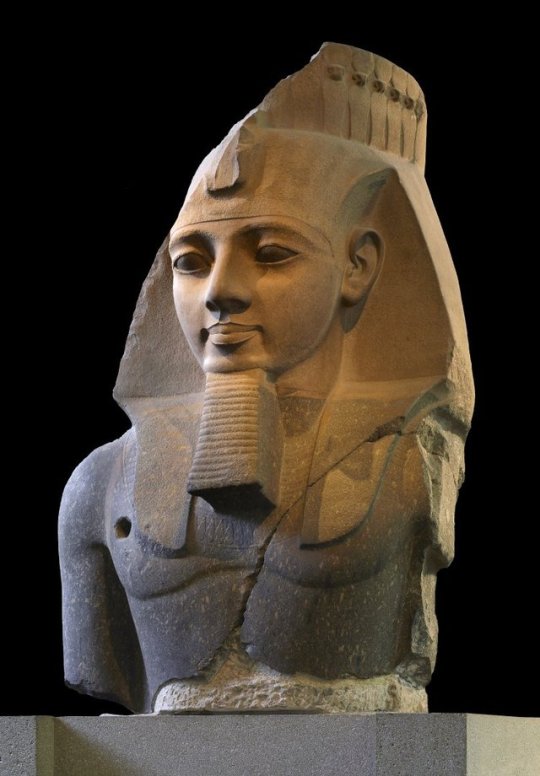
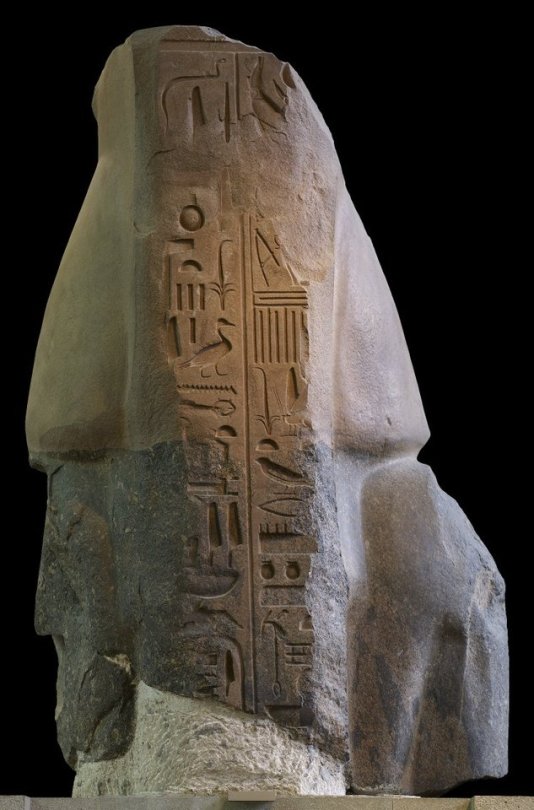
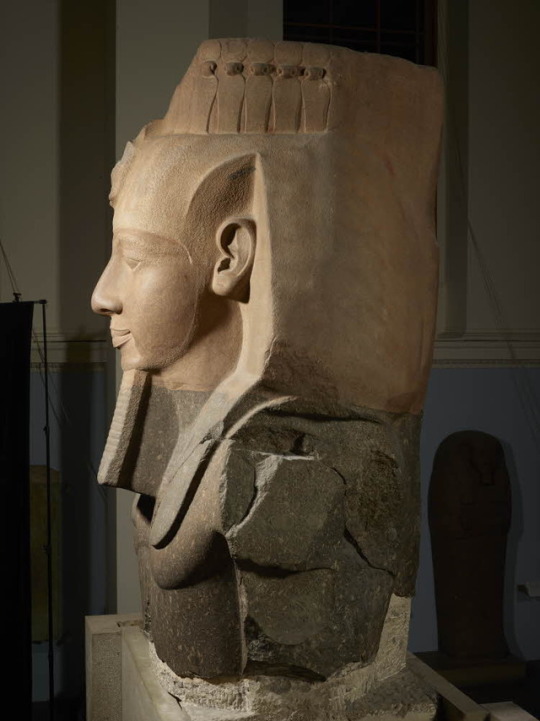
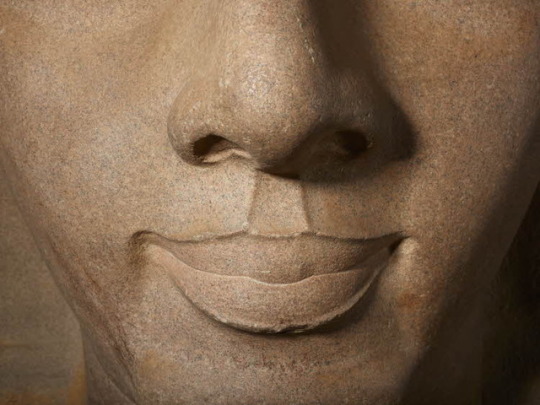

~ Statue of Ramesses II, the ‘Younger Memnon’.
Period: 19th Dynasty
Medium: Granodiorite, red granite
450 notes
·
View notes
Text
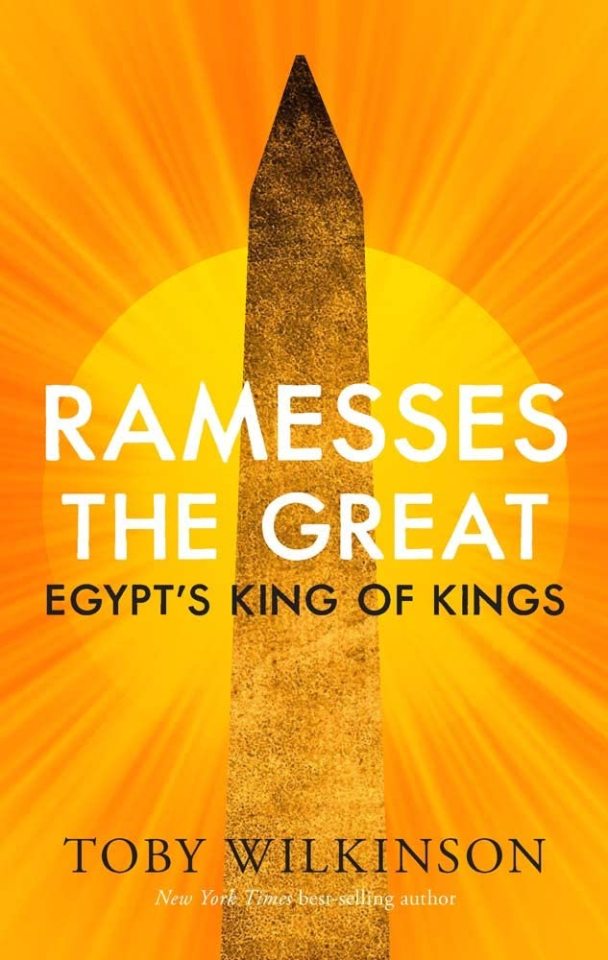
Ramesses II ruled the Nile Valley and the wider Egyptian empire from 1279 to 1213 B.C., one of the longest reigns in pharaonic history. He was a cultural innovator, a relentless self-promoter, and an astute diplomat—the peace treaty signed after the Battle of Kadesh was the first in recorded history. He outbuilt every other Egyptian pharaoh, leaving behind the temples of Abu Simbel; the great hypostyle hall of Karnak; the tomb for his wife Nefertari; and his own memorial, the Ramesseum.
His reputation eclipsed that of all other pharaohs as well: he was decried in the Bible as a despot, famed in literature as Ozymandias, and lauded by early antiquarians as the Younger Memnon. His rule coincided with the peak of ancient Egypt’s power and prosperity, the New Kingdom (1539–1069 B.C.).
The subsequent history of Ramesses’ mummy is every bit as dramatic as his initial reburial and rediscovery. In 1975, a French doctor, Maurice Bucaille, noticed that the body, kept under inadequate conditions at the Egyptian Museum in Cairo’s polluted city center, was deteriorating rapidly.
At the request of the French government, it was flown to Paris for scientific study and treatment. The international media, always eager for a sensational story concerning ancient Egypt, concocted a false report that the pharaoh had been issued with an Egyptian passport, which gave his occupation as “King (deceased).”
What is true is that the mummy was greeted on arrival at Paris’s Le Bourget airport in September the following year with full military honors before being taken to the Musée de l’Homme for examination.
In this authoritative biography, Toby Wilkinson considers Ramesses’ preoccupations and preferences, uncovering the methods and motivations of a megalomaniac ruler, with lessons for our own time.
— Ramesses the Great: Egypt’s King of Kings, by Toby Wilkinson
4 notes
·
View notes
Note
Which "side characters" to Alexander's story are you most interested in both as a historian and as a fiction author?
Well, Hephaistion is obvious. But my interests as an historian and as a writer are slightly different.
As an historian, I could wish for a more unbiased account of Perdikkas. Of Alexander's age cohort, he had the highest appointments at the youngest age. I suspect it owes to equally high birth. We aren't sure, but his father Orontes was probably the prince/once-king of the canton of Orestis. In the sources, he's poorly treated in part due to bad press from the Successor Wars.
Reputedly, he was arrogant and high-handed, and his own officers (led by Seleukos) killed him in Egypt. But was he that bad, or are these reports part of that bad press (and Seleukos's and Ptolemy's ambitions)? If he were a prince, perhaps his arrogance had cause. Alexander seemed to think he was the most competent of those who remained in Babylon and gave him the ring. Would he still have got it if Krateros hadn't been sent away earlier on his own mission? I suspect not, but we just don't know.
And then there's Krateros, who may also have hailed from Orestis and was probably a cousin of Perdikkas. But, again, we can't be sure. I'd like a better sense of Krateros, as well, to evaluate his place at court. Like Perdikkas, our sources attach a bias to him, but in his case, a positive one. I'm as suspicious of that as I am of the negative one assigned to Perdikkas.
After that, it's largely the women. Olympias, yes. But even more Kleopatra, Thessalonike, and Kynanna. Also Philip's mother Eurydike. I expect THAT woman was someone to be reckoned with. As was Audata, Kynanna's mother. And Hadea, the daughter/granddaughter. Roxana, and Darius's daughters.
Oh, I'd like to know a little more about Parmenion's family--where they came from originally (Pelagonia or not?), and the two younger sons. Philotas sucks up all the air in the room.
Last, I wish we knew more about Darius himself: who he was before being raised to the throne. My friend, Scott Oden, has decided to work on a novel about Darius, which I expect to be spectacular. He has a real talent for detailing the losing side with compassion and insight. If you've not read his novel, Memnon, I recommend it, or Men of Bronze. I think he'll do a great job giving Darius a fair shake.
Now, as an AUTHOR, my interests are similar, but I get to include fictional characters, such as Kampaspe. She may be mentioned in our sources, but was almost certainly a Roman-era invention. Also, you'll get to meet a priest of Ammon who'll travel with Alexander. While also fictional, Alexander must have had such officiants, as he regularly included Ammon in his sacrifices. And, of course, Kleopatra will continue as a voice and window on what's happening in Europe while Alexander is out gallivanting around Asia.
Last, there's a fellow in Athens you'll get to hear more about: Phokion. Plutarch wrote a life of him, in which he's portrayed as the last respectable Athenian general, and was nicknamed "the Good," in antiquity. In the novel, Hephaistion meets him in Athens, when he's there the second time, and he becomes one of (several) people Hephaistion corresponds with, besides Aristotle and Kleopatra.
Oh, I forgot…not a side character of Alexander, but I REALLY REALLY wish we knew more about Alexander (I) “the Golden.”
#asks#Alexander the Great#Other people in Alexander's orbit#Macedonian women#Perdikkas of Orestis#Krateros of Orestis#Kleopatra of Macedon#Kampaspe#Hephaistion#ancient Macedonia#Phokion
12 notes
·
View notes
Text
Neoptolemus super doc ? ??

ARE WE ABSOLUTELY SURE,, , ,, ,
uh okay, I pull together my super document of Pyrrhus, have pardon cause it's a bit old and i'm gonna spread it through like 3 or 4 posts probably , , so uh enjoy and I'm sorry for all grammatical errors
Skyros
Pyrrhus was born by the name Pyrrhus and this was based either on his red hair or due to Achilles name of Skyros being Pyrrha.
When it comes to appearances I generally describe him as a good mix of both Deidamia and Achilles’ traits, having inherited Deidamia’s red hair and Achilles Blue/teal eyes. He is around the middle of both of his parent’s height as I make Achilles 6’0 and Deidamia 5’3 when full grown, Pyrhhus rounds out to be 5’6. He also has a number of beauty marks which are similar to Achilles’.
It is unknown how long Achilles stayed on Skyros or when Pyrrhus was born. Either way Achilles did know about his son, we know this from the fact Achilles makes references to his son within the Iliad and Odyssey.
I like to believe that part of Pyrrhus growing up with his mother and aunts is that he has a lot of appreciation for women’s crafts and what they do. That he as a younger child would simply sit and be by his mother and/or aunts as they worked enjoying their company.
He would try his best growing up to join into their songs and dances, and at least once dressed himself in girls clothes to show his mother and aunts which got a good laugh out of them.
From Quintus ‘Fall of Troy’ we are informed that learning to fight and it was Odysseus and Diomedes who came with their black sails to ask him to join the war cause. He was promised to marry Menelaus’s daughter Hermione, he was also promised to have Achilles’ armor and gold, riches, and glory for coming with them.
While work will generally age him to being a young man or simply portray him to be very well spoken, if you follow along with the time line it is very possible that Pyrrhus is only 11 or 12 when he leaves Skyros, I tend to write him as being 13 for my own comfort.
Another thing to note form Quintus’s piece on Pyrrhus is they depict this being especially sad for Deidamia, she is written as having weeped and weeped. She doesn’t want him to leave because she doesn’t want him going to war and leaving her. She doesn’t want him hurt and she doesn’t want another person she loves leaving her again.
Deidamia Pyrrhus’s mother is written as loving him and I interpret bits of this story as Pyrrhus is the only tie to Achilles she has. Generally I prefer the idea that Deidamia did care for Achilles and so it did break her heart that he left and she had hoped that he would return eventually to her and their son.
Over the years she understood more and more that he would not return, so all she had was her son, and then eventually they come and take him from her as well.
Mattering on the version of the story, it is fully possible that Deidamia may have never seen her son again once he left the island.
Dawn climbed the wide-arched heaven, straightway they rose from their beds. Then Deidameia knew; and on her son's broad breast she cast herself, and bitterly wailed: her cry thrilled through the air, as when a cow loud-lowing mid the hills seeks through the glens her calf, and all around Echo long ridges of the mountain-steep; so on all sides from dim recesses rang the hall; and in her misery she cried: "Child, wherefore is thy soul now on the wing to follow strangers unto Ilium the fount of tears, where perish many in fight, yea, cunning men in war and battle grim? And thou art but a youth, and hast not learnt the ways of war, which save men in the day of peril. Hearken thou to me, abide here in thine home, lest evil tidings come from Troy unto my ears, that thou in fight hast perished; for mine heart saith, never thou hitherward shalt from battle-toil return. Not even thy sire escaped the doom of death -- he, mightier than thou, mightier than all heroes on earth, yea, and a Goddess' son -- but was in battle slain, all through the wiles and crafty counsels of these very men who now to woeful war be kindling thee. Therefore mine heart is full of shuddering fear lest, son, my lot should be to live bereaved of thee, and to endure dishonour and pain, for never heavier blow on woman falls than when her lord hath perished, and her sons die also, and her house is left to her desolate. Straightway evil men remove her landmarks, yea, and rob her of her all, setting the right at naught. There is no lot more woeful and more helpless than is hers who is left a widow in a desolate home."
Lemnos
Pyrrhus agrees to go with them and on the way they stop by the island of Lemnos to get Philoctetes. Odysseus makes Neoptolemus lie to Philoctetes because he knows that he hates Odysseus because he is the man who abandoned him on Lemnos and he knows that Philoctetes doesn’t want to go to Troy but back to Greece and to his home.
This causes a Pyrrhus strife because he has been taught to be noble up until now, in the play Philoctetes by Sophocles we are shown multiple times how this causes him strife because he is having to lie. Philoctetes also considers Pyrrhus to be a friend because Pyrrhus lies and says that he wants to go back home to Skyros because of the way he is treated by the other Greeks even though he hasn’t met any of them yet to our knowledge.
Good lines from this play that I personally characterize him are
‘It would have been better if i had never left scyros. Everything around me oppresses me ..’
‘He’ll (odysseus) claim i’m too soft-hearted’
‘I can’t. It is right and in our interest to listen to those in authority’
Some of the best development to see from this is how he was raised to be noble and how he doesn’t want to trick people or lie, he wants to be honest.
Another thing I find interesting to read from specifically this play is how Pyrrhus is very rarely called by his own name, he is almost always referred to ‘son of achilles’ and also in this play he is often referred to as ‘child’ or ‘boy’.
While none of these things are brought up as an issue in the play I do think it is a detail you can play with, like how it might weigh on an individual to be always referred to by your famous father or how people don’t recognize you by your name but by your father’s.
I think these are things that would weigh on Pyrrhus he wants to live up to his father but it also oppresses him to be referred in such a way. He wants to be like his father but he is still his own individual which he doesn’t feel recognized by as people continually anything but his own name.
To the idea of playing into the fact he is also often called ‘boy’ or ‘child’ These could be names that eventually upset and anger him. He is being dragged into this war like he is old enough to fight, which he is not and yet he is not recognized as such by those around him.
It is a case of a child feeling indignatinge by being called terms which denote being naive, though I like to think there is some justification for his anger because this isn’t just a small thing but he is being taken into a man's world.
In Philoctetes he is referred to by the name Neoptolemus, he was given this name by Phoenix, a man also considered to be a father by Achilles. Phoenix is one of the oldest men in the Trojan war and he is either involved with Pyrrhus coming from the island to Skyros to the war or some time later down the road. He gave him this name because it means ‘new war/warrior’ it is meant to reflect how Achilles himself was a young man when he entered the war.
It is honestly more common to see Pyrrhus referred to as Neoptolemus by the Greeks and Pyrrhus by Roman sources to my knowledge. (i’ll be using Pyrrhus just for simplicity)
Troy
There are a lot of various stories that have to do with the fall of Troy, we have records again from Quintus “Fall of Troy” and the “Aeneid” by Vergil. There are also a number of plays by the three tragedians of Ancient Greece(Sophocles, Euripides, Aeschylus) that have to do with the end of the war and various stories of the aftermath.
While Pyrrhus doesn’t appear in these very often they still help to give more insight to his possible character.
Pyrrhus makes a minor appearance within the play of ‘hecuba’ and is in the background of ‘andromache’, he makes no appearance within this story but he is directly related to things happening in the play.
Back onto the subject of the fall of Troy, he is regarded as the killer of both Astyanax and Priam. These are generally agreed upon details and sometimes Odysseus fills the role of Pyrrhus when the story decides they don’t want to introduce more characters.
He is generally described as being ‘battle-eager’ ‘Fierce-hearted’ and a few other epithets relating to fighting. In general he is not described as being worse than anyone else. The fall of Troy is a greek work and all the Greeks within this work are killing and fighting people. He is by all means a competent fighter within the text.
In the Odyssey when Odysseus goes into the underworld and speaks with the dead, and when Achilles comes to speak he asks about his son.
Odysseus describes him as
‘but I can tell you all about your son Neoptolemus, for I took him in my own ship from Scyros with the Achaeans. In our councils of war before Troy he was always first to speak, and his judgement was unerring. Nestor and I were the only two who could surpass him; and when it came to fighting on the plain of Troy, he would never remain with the body of his men, but would dash on far in front, foremost of them all in valour. Many a man did he kill in battle- I cannot name every single one of those whom he slew while fighting on the side of the Argives, but will only say how he killed that valiant hero Eurypylus son of Telephus, who was the handsomest man I ever saw except Memnon; many others also of the Ceteians fell around him by reason of a woman's bribes. Moreover, when all the bravest of the Argives went inside the horse that Epeus had made, and it was left to me to settle when we should either open the door of our ambuscade, or close it, though all the other leaders and chief men among the Danaans were drying their eyes and quaking in every limb, I never once saw him turn pale nor wipe a tear from his cheek; he was all the time urging me to break out from the horse- grasping the handle of his sword and his bronze-shod spear, and breathing fury against the foe. Yet when we had sacked the city of Priam he got his handsome share of the prize money and went on board (such is the fortune of war) without a wound upon him, neither from a thrown spear nor in close combat, for the rage of Mars is a matter of great chance.'
In general from the greek sources he is described as nobly.
He is noted for killing quite a few people during the fall of Troy but his most notable kills are Priam, who he kills within the throne room (to my knowledge) and Astyanax who is killed after Troy has fallen.
In the Aeneid by Vergil he is described in ways that frame him a more villainous or evil way
‘The fatal work inhuman Pyrrhus plies,’
During when Pyrrhus is about to kill Priam there is a line that I believe characterizes him as more of a tragic character than anything else. Before killing Priam, Priam berates him about how Pyrrhus is about to treat Priam because of how Achilles showed him humanity and how Achilles gives Priam his son’s body back. This is partly brung up because Pyrrhus getting into the throne room kills one of Priam’s sons in front of his face.
The line basically translates out to be Pyrrhus telling Priam that when he dies and sees his father to tell him of the terrible deed of his son, of how terrible his son is.
In the translation that I read they use the line ‘Tell him of degenerate Neoptolemus’
When in the context of the Philoctetes I think this paints Pyrrhus as being a rather tragic and sad character, because prior to going to the island of Lemnos Pyrrhus tried to act most noble, he wants to be noble like his father. When on Lemnos he has his morals questioned and is forced to go against his morales at the hand of Odysseus.
I interpret this as him vocalizing how he might be upset with himself as he is forced to look at the reality of war which isn’t noble or glorious at all. He wants to live up to the noble idea of his father and everything he is forced to do makes him feel terrible.
I personally think that Pyrrhus probably doesn’t know a lot about the terrible things that Achilles has done or he tries to ignore them. When fighting in the war he might realize his idea of his father might not truly be acturte, he was raised on stories from his mother telling him of his outstanding father.
In terms of justifying his actions during the war because going off my own headcanon he probably wouldn’t be so interested in killing so many people, I imagine he kinda just turns off his head and acts purely on his emotions and just acts like that of a soldier. (Is this PTSD?)
He follows the orders given to him and acts without questioning and lets all his emotions out. I personally don’t assign Pyrrhus that much pride but I like to think he inherited some of his fathers famous anger. All of his anger at what he is being forced to do comes out when he is forced to fight.
That is where the brutality of his portrayal within the Aeneid comes from.
#super doc sorry#my thoughts#my terrible terrible thoughts of my boy#I am sorry some of these thoughts are kinda old and need to get updated lol#neoptolemus#pyrrhus#the iliad#(I guess)#my super doc of all things
39 notes
·
View notes
Text
if you hear any stories about a girl repetitively tearing up in the british museum today, yes that was me, the nerd who gets overly emotional about seeing her favourite works of art in reAL LIFE. !!!!!
#the younger memnon statue & the centuaromachy metopes from the parthenon are real tear-jerkers ok#the hokusai exhibit was sold out for the next 3 weeks so that made me d: too#but i walked for 9 hours and bought a lot of stuff and ate my fave cookies today so life is good#ireland & england 2017#p
3 notes
·
View notes